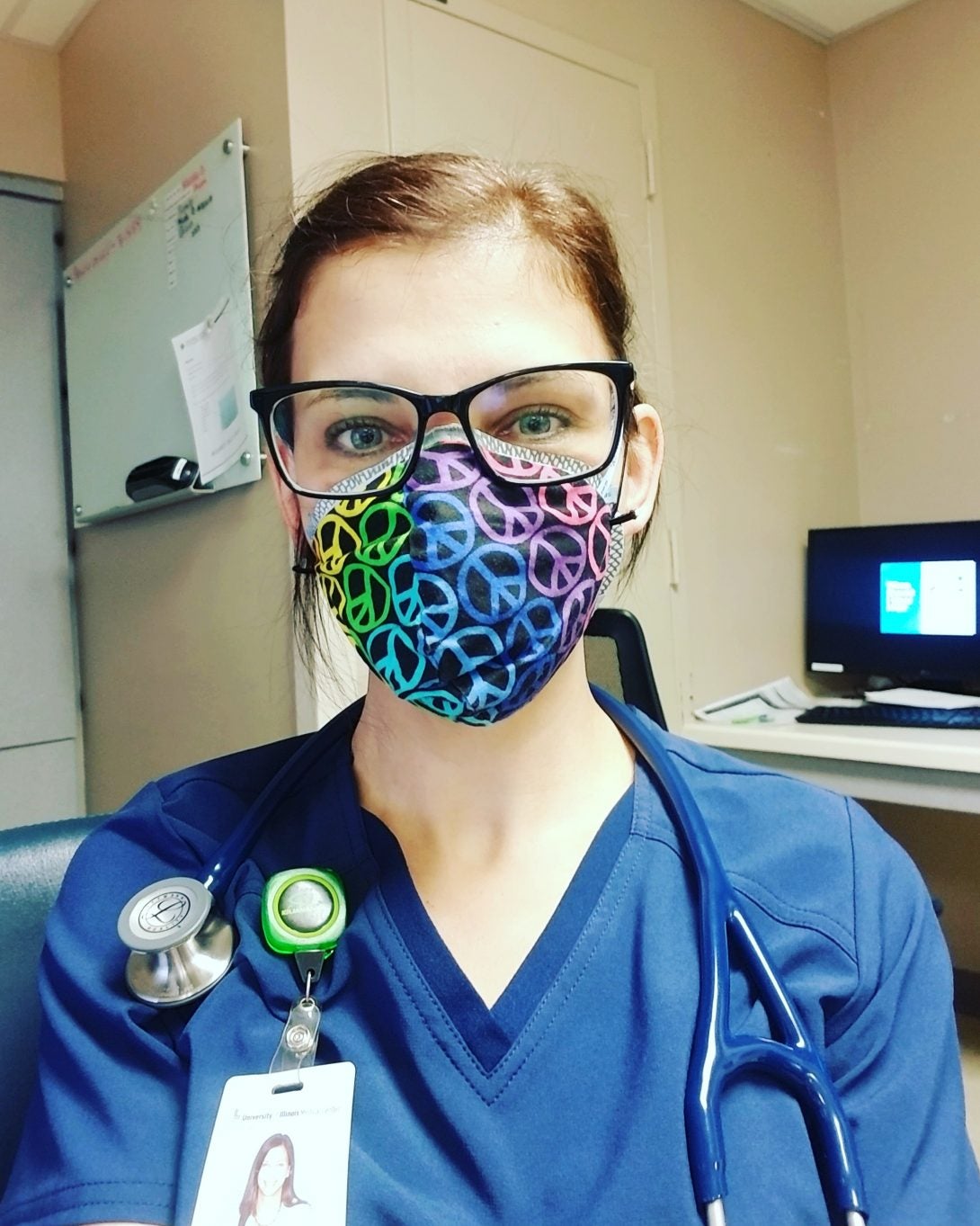‘Never more proud to be a nurse’
body

After working a 13-hour shift at University of Illinois Hospital last week, UIC Nursing clinical assistant professor Julie Schwind, DNP ’17, MS ’06, BSN ’00, RN, clocked out, got to her car, and started sobbing.
She was exhausted and emotionally overwhelmed by the critically ill patients who filled the floors of the hospital. The ICUs brimmed with COVID-19 patients and the stepdown units held patients who survived the disease but were now fighting liver and kidney failure. Some were unable to absorb tube feedings; some had bloody stools infiltrating their bedsores; some had been bedridden so long their muscles were wasting away.
Two days later, she took to her computer, letting loose a torrent of words and emotions in a Facebook post.
“My coworkers are dying, and we all fear that we could be next,” she wrote. “My patients are dying, and their families cannot be there. My fellow nurses are struggling, because there has never been anything like this in our careers and it is hard to fathom keeping up this level of work indefinitely.”
People quickly began sharing the post, and by two days later, as she worked another 12-hour shift, it had been shared more than 200 times. As of this writing, it had been shared more than 500 times, many by people she doesn’t know.
Returning to the floor
With a full-time faculty position, Schwind no longer typically practices as a floor nurse, but she offered to take on shifts at University of Illinois Hospital to help combat the coronavirus. She knew she wanted to be on the frontlines and that her clinical expertise would be needed. She routinely takes her students on rounds through the hospital and was familiar with the computer systems and protocols there.
After an accelerated orientation – led in part by one of her former students – she was assigned to the neuro stepdown unit, where she’s been working a few 12-hour shifts per week in addition to her teaching duties.
There, she’s seen two UI Health nurses and one surgical technician die from COVD-19 and is frightened of the future ahead, where patients who do recover from the disease have a long and uncertain road.
“We talk among ourselves: ‘This is what is coming,’” she wrote in her post. “We will spend the next who knows how long trying to heal these patients who barely survived covid [sic] and now have months or years of intense medical management to even think about a semi-normal life, while new covid [sic] patients continue to stream in.”
She also advocated for the continued use of science and evidence-based research in the fight against COVID-19.
But she ended her post, which she wrote during National Nurses Work, on a note of optimism.
“Nurses, you are amazing,” she wrote. “I have NEVER been more proud to be a nurse.”